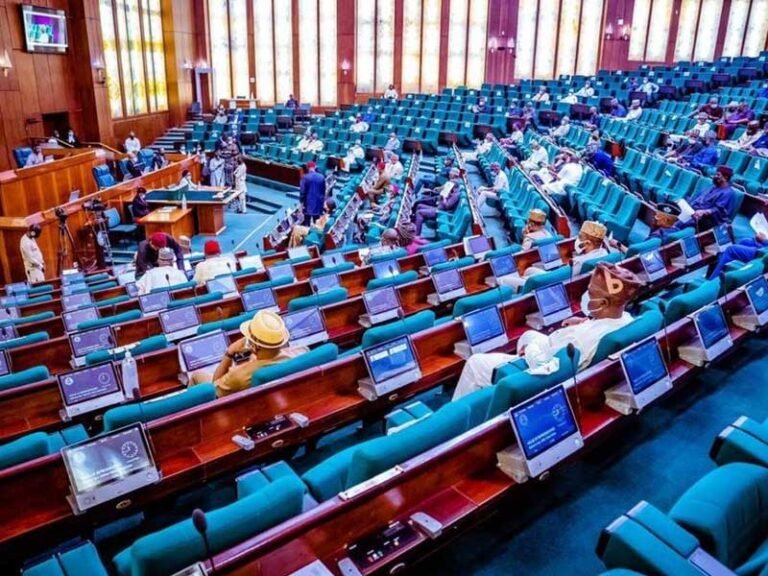The House of Representatives has said that Nigerian Midstream and Downstream Petroleum Regulatory Authority (NMDPRA) and the Standards Organisation of Nigeria (SON) must guarantee that all petrol imported into this country is rigorously tested in laboratories to meet the standard sulphur and octane levels.
The Deputy Speaker, Hon. Ben Kalu disclosed this on Monday in Abuja at the inaugural meeting of the House joint midstream and downstream committee investigating challenging developments in the downstream/midstream sector.
He said the meeting was convened to delve into the complexities surrounding the importation of adulterated petroleum products, the difficulties of our domestic refiners in accessing crude oil feedstock, especially modular refineries, and the broader threats these issues pose to Nigeria’s energy security.
Kalu said the committee was mandated to the resurgence of fuel queues at petrol stations, the increasing cost of Premium Motor Spirit (PMS), and the unavailability of crude oil feedstock for downstream domestic refineries are of particular concern.
The Deputy Speaker reiterated that the quality of petroleum products imported into Nigeria has come under scrutiny, and we must ensure compliance with global standards.
He said: “The Nigerian Midstream and Downstream Petroleum Regulatory Authority (NMDPRA) and the Standards Organisation of Nigeria (SON) must guarantee that all petrol imported into this country is rigorously tested in laboratories to meet the standard sulphur and octane levels.
“It is unacceptable that the petrol imported into the country contains high sulphur levels, is leaded, and has low octane levels – as we notably experienced in the recent past that even led to socio-economic losses on a national scale including the knocking down of the engines of vehicles of Nigerians in their hundreds.
“In carbon control economies, maintaining high octane levels is a significant regulatory issue for both energy regulators and environmental protection agencies. The lower the octane level, the cheaper the cost of refining, but this should not be at the expense of quality and environmental standards.”
Kalu added that the role of regulatory bodies such as the SON, the National Environmental Standards and Regulations Enforcement Agency (NESREA), saying the NMDPRA was pivotal in ensuring that the petrol consumed in Nigeria is of environmentally friendly grade.
According to him, One critical aspect we must address is the infrastructure for quality assurance that enables robust testing of petroleum products with the standard practice for manual sampling fully adhered to.
Kalu stressed that It is expected that the joint committee would carry out investigations on the quality and the number of laboratories that both the NMDPRA and SON have or use for their tests and return with actionable feedback.
He said as for the difficulties encountered by domestic refiners in accessing reliable supplies of crude oil feedstock for their refineries, it must be reiterated that President Bola Tinubu is fully committed to providing a level playing ground for producers and refiners to do business in the industry.
Speaking, the Chairman of the joint committee, Hon. Ikenga Ugochinyere said the committee would be addressing allegations concerning the importation of substandard petroleum products and the non-availability of crude oil to domestic refineries, which has raised serious concerns about the quality and safety of fuel in our market.
He said the committee would take a closer look at the integrity of the testing processes for petroleum products in the country, particularly focusing on the capacity and credibility of all the testing labs of all stakeholders in the downstream midstream value chain, local middlemen and the laboratories they employ.
To ensure a thorough and transparent investigation, Ugochinyere noted that the committee would undertake detailed laboratory investigations at all local refineries, marketers and importers facilities, and regulatory agencies, State Oil Company and other players in the sector.
He added: “We will visit various filling stations, depots, and tank farms to take samples in line with international standards, verify the quality of imported products and assess the testing capacities of all refineries and all refined product handling outfits.
“The collection of samples will be done transparently and inline with global best practices and would be in four specimens for independent testing in a different standard, accredited Laboratory including that of all stakeholders involved in refining and importation of refined petroleum products.”
Ugochinyere explained that the committee would select different locations, including filling stations, depots and even currently discharging ships.
He noted that samples taken in the presence of Representatives of NMDPRA, refineries representatives, marketers/importers and the Committee.
Ugochinyere said after collection, the samples will be tested jointly and also independently by the committee and the stakeholders to ascertain the contents.

